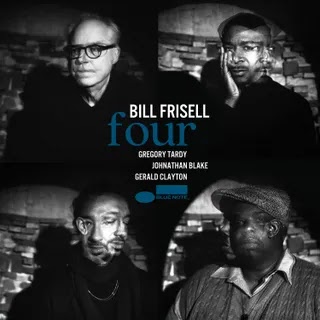On her solo debut, the double bassist largely lets her instrument play a supporting role for her distinctive soprano vocals, working through deep feelings via quietly adventurous songwriting.
As a proficient double bassist that has appeared on a considerable list of records, Carmen Q. Rothwell knows her instrument inside and out. A skilled player is often recognized for technical virtuosity, but an underappreciated aspect of mastering your instrument is having an intuitive understanding of its strengths. On her debut album as a solo artist, Rothwell forsakes flashiness in favor of letting the bass do what it does best—play a supporting role. Rothwell allows her voice to take the lead, which seems appropriate for a collection of songs where she’s talking through her feelings. Amid struggles of a romance slowly grinding to a standstill and her late father’s protracted battle with cancer, she wrote through her pain and created an eye of tranquility in the center of a storm of emotion. Calling to mind the airy sweetness of Blossom Dearie and the extended techniques of Meredith Monk in equal measure with her distinctive soprano, Rothwell has created something informed by her experience with jazz, but with a strong experimental bent.
Don't Get Comfy / Nowhere neatly divides itself between its two themes, a suite of three songs representing each. “Don’t get comfy,” Rothwell sings on the opening track, bringing you into the unease of her love affair: “Something is amiss.” Rothwell plucks sharply at the strings at sparse intervals, leaving each note plenty of space to ring out. More layers of Rothwell’s thinly transparent vocals enter the fray, repeating the same phrase out of phase with the others. You hear her inhale and breathily sigh, every utterance bearing the gravity of words not spoken lighty. In contrast, on “Blissful Ignore,” she lifts that weight and floats like a feather in the wind. “I’d adore staying a lifetime in your mind’s affections,” she chirps, selling herself on the temporary solace of denying an impending collapse. Her bass comes alive, punctuating her syllables as if following behind her like a specter—a reminder of the anxiety beneath those hollow words.
“Nowhere”—the most structurally simple, but perhaps the most evocative track—begins the side of the album where Rothwell grapples with her father’s passing. Her bass thumps like a steady heartbeat as she sings, “You can go any time/Wouldn’t it be sweeter to follow the light?” A more frantic, irregular bassline cuts in, and the vocals speed up along with it, simulating the tumult of the moment right before a painful loss. The track inches to a crawl right before it ends—the pulse returns, but it’s even slower than before. It almost feels as if you’re intruding on a private moment, standing in the doorway as Rothwell sits at her father’s bedside.
Rothwell ruminates on the aftermath of her emotional journey on closing track “Will I Find,” asking, “Will I find a way to say I love you too?” It’s about the closest the album gets to a “song” in the traditional sense, conjuring up shades of something you might find in a book of jazz standards. The bass supports the intonation of her vocals once again, but it feels different this time—looser and gentler, as if it’s singing along with her. There’s a lyrical simplicity that matches the album's musical simplicity, but that isn’t to say that it lacks depth. Each track is built around a plainspoken refrain, like a nagging feeling you can’t get out of your head. Don't Get Comfy / Nowhere speaks to the intensity of strong emotion, which requires neither florid language nor flamboyant displays of virtuosity to be universally understood.
















0 comments:
Post a Comment